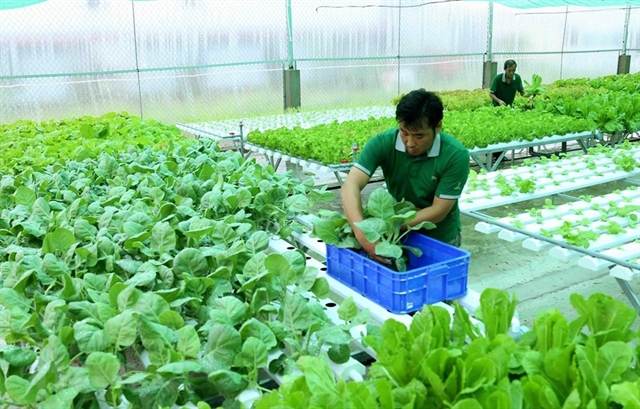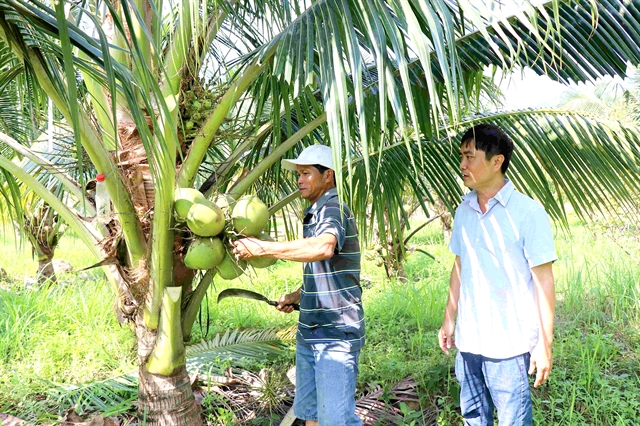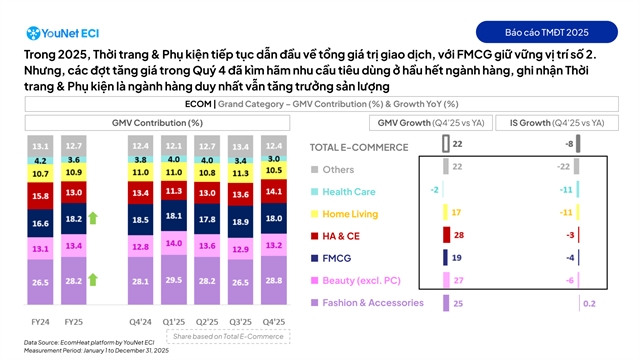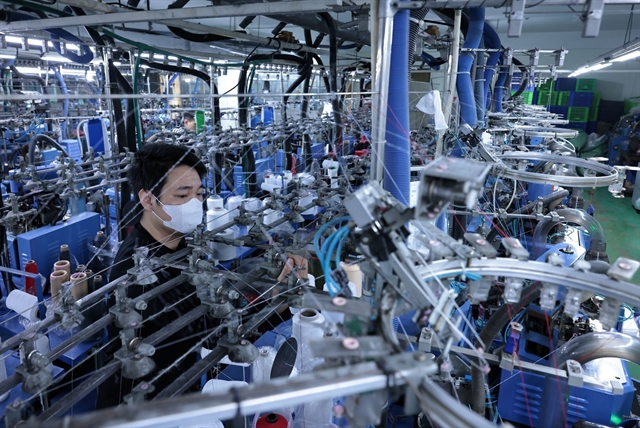 Economy
Economy

 |
| An organic coconut farm in Khánh Hòa Province. Việt Nam could meet the growing demand for organic products in Northern Europe market. —VNA/VNS Photo |
HÀ NỘI — Northern Europe is emerging as one of the world’s leading regions in organic product consumption, presenting a significant opportunity for Vietnamese enterprises capable of supplying high-quality organic agricultural products, according to the Việt Nam Trade Office in Sweden.
With a favourable climate and soil conditions conducive to organic farming, Việt Nam could meet the growing demand for organic products in this region.
Việt Nam boasts a variety of organic agricultural products that are already gaining recognition on the international market for their superior quality and distinctive flavours.
Key products include tea, coffee, cashews, pepper, coconut, vegetables and herbs, all of which have potential to thrive in the northern market.
Items like ginger, lotus and chrysanthemum tea, and a variety of Vietnamese herbs, are particularly popular due to their health benefits, aligning perfectly with the organic consumption trends in this region.
While the Nordic region presents a promising market for Vietnamese organic products, there are several challenges to overcome.
Nordic countries, along with the broader European Union (EU), have stringent standards for food safety, organic certification and sustainability.
To successfully penetrate this market, Vietnamese businesses must ensure their products meet these high standards, including obtaining certifications like EU Organic Certification and complying with environmental and labour safety regulations.
Securing international certifications such as EU Organic or Fair Trade can be costly and time-consuming.
This presents a significant barrier, particularly for small and medium-sized enterprises (SMEs) in Việt Nam, who may struggle with the resources required to pursue these certifications, according to the trade office in Sweden.
Additionally, businesses need to manage a transparent and efficient supply chain that adheres to strict standards for raw material origin, production processes and transportation.
A critical step in conquering the Nordic market is developing a strategy that emphasises transparency, sustainability and strict adherence to international organic standards.
Establishing a transparent supply chain is essential to build trust with local consumers, who are particularly concerned with the origin and production process of the products they purchase.
To meet these expectations, Vietnamese businesses must work closely with farmers, manufacturers and other stakeholders, to ensure that every step of the organic production process, from planting to final delivery, complies with international certifications.
Achieving certifications from reputable organisations such as IFOAM (International Federation of Organic Agriculture Movements) or Fairtrade International will not only improve the credibility of Vietnamese products but also enhance their competitiveness in the Nordic market.
This market consists of various customer segments, each with unique preferences and needs. By identifying these segments, businesses can tailor their marketing strategies effectively.
Of which, for health-conscious consumers, this group prioritises healthy, organic products, particularly in food, beverages and personal care items. Offering products that align with their values will resonate well with this segment.
For environmentally conscious consumers, these customers are interested in sustainable and eco-friendly products, particularly those that are recyclable or biodegradable. Vietnamese businesses can tap into this segment by emphasising the environmental benefits of their products.
Regarding to high-end consumers, these customers are willing to pay a premium for high-quality, unique products that offer cultural value. By showcasing the distinctiveness of Vietnamese agricultural products, businesses can appeal to this niche but lucrative market.
To stand out in a competitive market, Vietnamese enterprises must build a strong brand that embodies organic, sustainable values.
Leveraging popular e-commerce platforms such as Zalando, Etsy, or Amazon will also be crucial for reaching a wide audience and promoting products effectively.
Participating in international trade fairs focused on organic products and food provides a valuable opportunity for Vietnamese businesses to showcase their products, find potential partners and stay updated on market trends. Notable events like BioFach in Germany, the Nordic Organic Food Fair in Sweden and Organic in Denmark. — VNS




